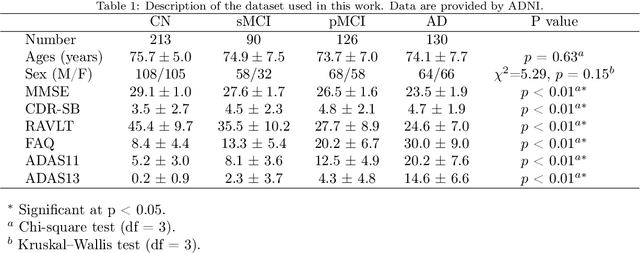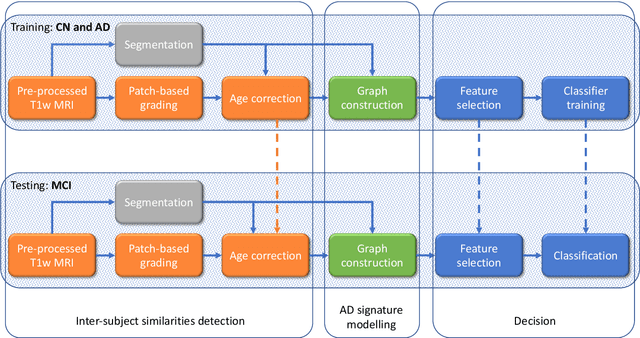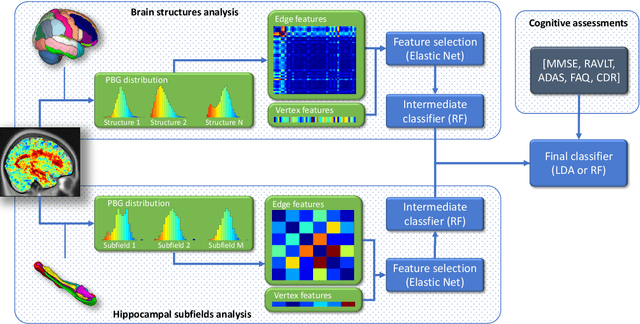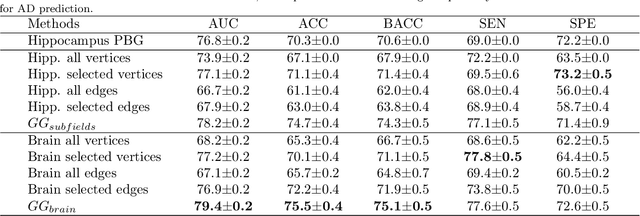Multi-scale Graph-based Grading for Alzheimer's Disease Prediction
Paper and Code
Jul 15, 2019



The prediction of subjects with mild cognitive impairment (MCI) who will progress to Alzheimer's disease (AD) is clinically relevant, and may above all have a significant impact on accelerate the development of new treatments. In this paper, we present a new MRI-based biomarker that enables us to predict conversion of MCI subjects to AD accurately. In order to better capture the AD signature, we introduce two main contributions. First, we present a new graph-based grading framework to combine inter-subject similarity features and intra-subject variability features. This framework involves patch-based grading of anatomical structures and graph-based modeling of structure alteration relationships. Second, we propose an innovative multiscale brain analysis to capture alterations caused by AD at different anatomical levels. Based on a cascade of classifiers, this multiscale approach enables the analysis of alterations of whole brain structures and hippocampus subfields at the same time. During our experiments using the ADNI-1 dataset, the proposed multiscale graph-based grading method obtained an area under the curve (AUC) of 81% to predict conversion of MCI subjects to AD within three years. Moreover, when combined with cognitive scores, the proposed method obtained 85% of AUC. These results are competitive in comparison to state-of-the-art methods evaluated on the same dataset.
 Add to Chrome
Add to Chrome Add to Firefox
Add to Firefox Add to Edge
Add to Edge